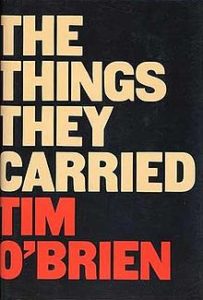In the moment, you often can’t tell which books are which. The Great Gatsby wasn’t a bestseller upon its release, but we now see it as emblematic of a certain American sensibility in the 1920s. Of course, hindsight can also distort the senses; the canon looms and obscures. Still, over the next weeks, we’ll be publishing a list a day, each one attempting to define a discrete decade, starting with the 1900s (as you’ve no doubt guessed by now) and counting down until we get to the (nearly complete) 2010s.
Though the books on these lists need not be American in origin, I am looking for books that evoke some aspect of American life, actual or intellectual, in each decade—a global lens would require a much longer list. And of course, varied and complex as it is, there’s no list that could truly define American life over ten or any number of years, so I do not make any claim on exhaustiveness. I’ve simply selected books that, if read together, would give a fair picture of the landscape of literary culture for that decade—both as it was and as it is remembered. Finally, two process notes: I’ve limited myself to one book for author over the entire 12-part list, so you may see certain works skipped over in favor of others, even if both are important (for instance, I ignored Dubliners in the 1910s so I could include Ulysses in the 1920s), and in the case of translated work, I’ll be using the date of the English translation, for obvious reasons.
For our tenth installment, below you’ll find 10 books that defined the 1990s. (Head here for the 1910s, 20s, 30s, 40s, 50s, 60s, 70s, and 80s).
 Tim O’Brien, The Things They Carried (1990)
Tim O’Brien, The Things They Carried (1990)
In 1990, when Houghton Mifflin published
the book, Vietnam was still recent history, its individual and
collective wounds far from healed. Just as the years between combat and
publication affected O’Brien’s perception of events, so has an almost
exactly equal span changed the character of the writing. The Things They Carried
is now, like the war it depicts, an object of classroom study, kept
relevant more by its craft than by the urgency of its subject matter.
The raw, restless, anguished reckoning inscribed in its pages—the “gut
hate” and comradely love that motivated the soldiers—has come to reflect
conventional historical wisdom. Over time, America’s wars are written
in shorthand: World War II is noble sacrifice; the Civil War, tragic
fratricide; Vietnam, black humor and moral ambiguity.
I’d argue that The Things They Carried is now itself a one-volume shorthand for the Vietnam War—or the closest thing to it. ... [mehr] https://lithub.com/a-century-of-reading-the-10-books-that-defined-the-1990s/
Keine Kommentare:
Kommentar veröffentlichen